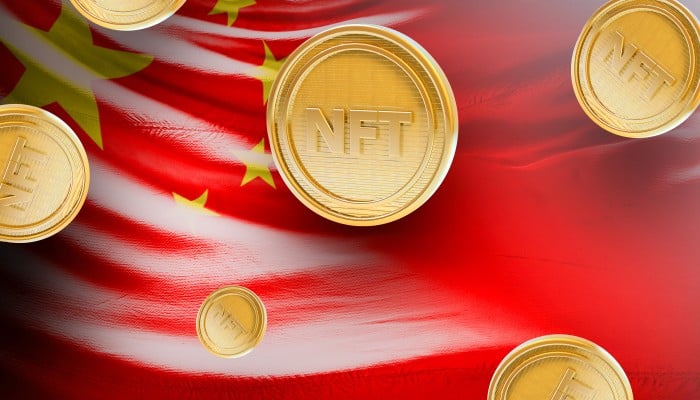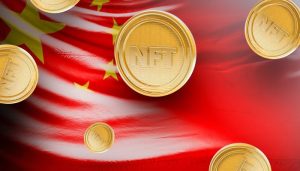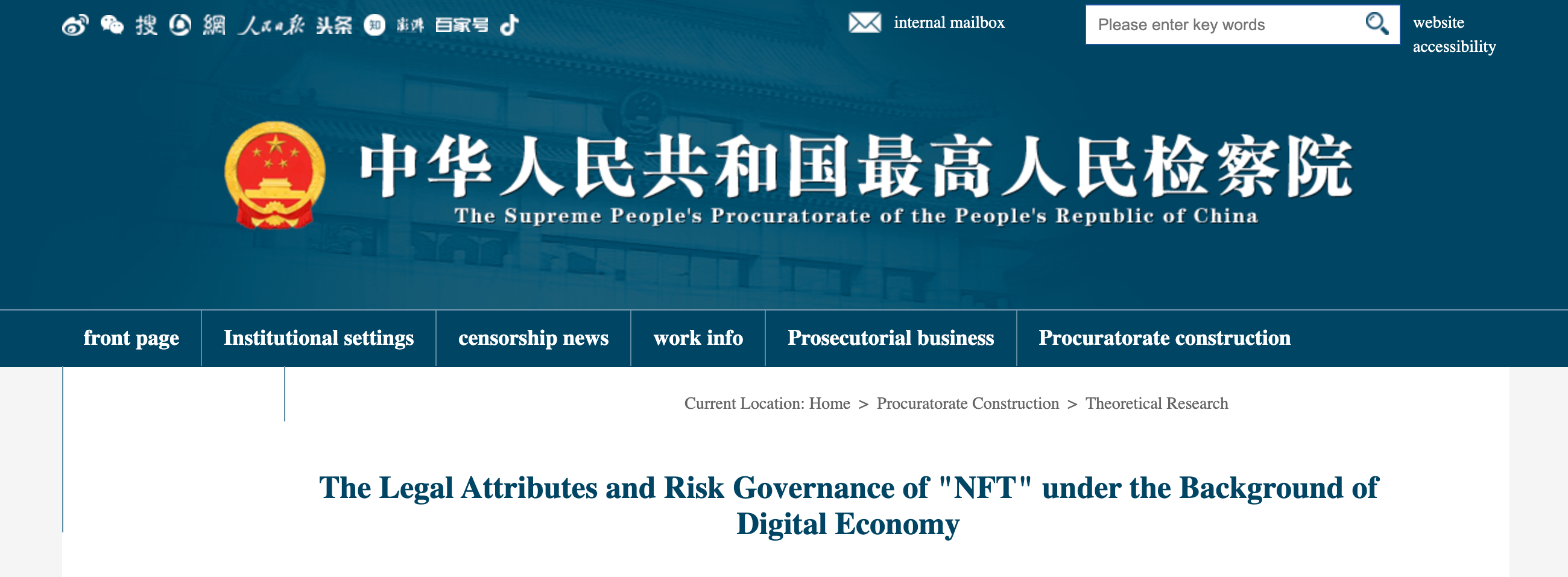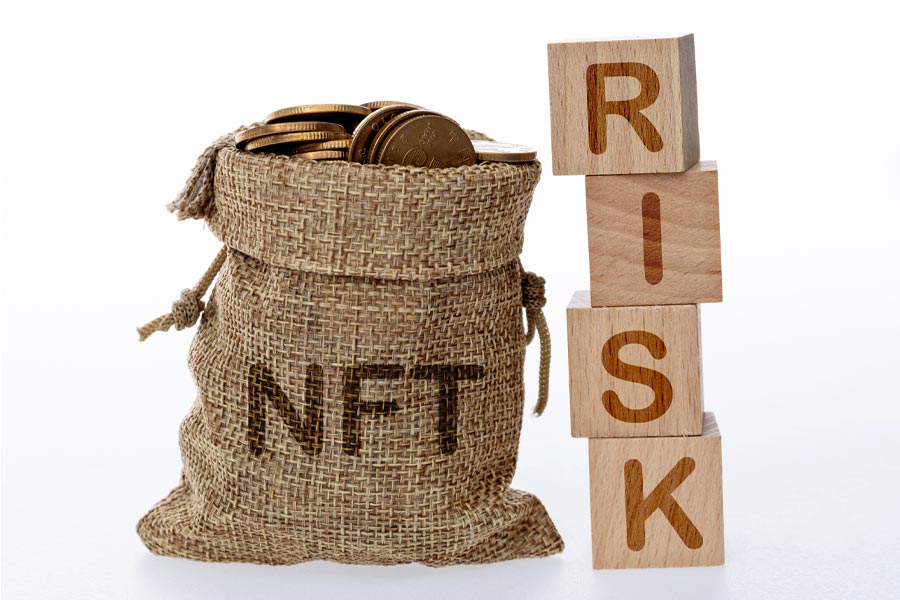Join Our Telegram channel to stay up to date on breaking news coverage
China’s Supreme People’s Procuratorate, the highest legal prosecution agency in the country, has expressed concerns about non-fungible tokens (NFTs) and their similarity to banned virtual assets.
China’s Response to Non-Fungible Tokens NFTs and Blockchain Technology
In response, the agency has published guidelines that aim to address the treatment of NFTs and emphasizes the importance of conducting thorough risk assessments and imposing appropriate punishments for related crimes.
Following the ban on cryptocurrency trading and related services in 2021, the crypto industry in China largely disappeared. However, NFTs emerged as a new trend and gained popularity as digital collectables, which were seen as distinct from high-risk cryptocurrencies. Consequently, NFT adoption experienced a surge within China.
The report published by the prosecuting body sheds light on the characteristics and potential hazards of NFTs. Although NFTs offer the ability to link distinctive digital markers to tangible or virtual items, thereby establishing ownership proof via blockchain technology, the agency contends that genuine possession and authority over digital art still pose challenges.
NFTs possess the ability to be duplicated and disseminated, thereby curbing the extent to which consumers can fully exercise their ownership entitlements.
Taking a legal standpoint, the report provides clarity by stating that consumers do not hold ownership of NFT digital assets they acquire in the conventional manner as defined by civil law. Furthermore, consumers lack the capacity to impede others from accessing, reproducing, or distributing the digital assets symbolized by NFTs.
Instead, consumers solely possess an exclusive privilege to deter any tampering with the ownership record stored on the blockchain, without exercising broader control over the assets’ usage and circulation.
Despite China’s cautious stance towards cryptocurrencies, the nation acknowledges the immense possibilities presented by blockchain technology, which forms the bedrock of virtual assets.
The prosecuting body acknowledges the potential for growth that NFTs, as an innovative utilization of blockchain technology, hold. This signifies China’s keenness to harness the power of blockchain for the advancement of national digital infrastructure projects.
By recognizing the significance of blockchain’s capabilities beyond cryptocurrencies, China aims to explore and capitalize on the opportunities it presents for various aspects of its digital development agenda.
Unprecedented Surge in NFT-Related Complaints Exposes Challenges and Urges Regulatory Action in China
China has experienced a significant surge in complaints related to non-fungible tokens (NFTs) in recent times. Over the course of the past year, Chinese users have lodged an astounding 59,700 complaints concerning NFTs, a staggering increase of 30,000% compared to the previous year when fewer than 200 complaints were reported regarding digital collections.
The grievances primarily revolve around issues such as the non-delivery of purchased items, lack of refunds, manipulation of prices, exorbitant fees, and arbitrary banning of consumer accounts. The complexity of supervising this emerging field, such as digital collections, has been acknowledged, making effective oversight more challenging.
The regulatory landscape surrounding NFTs in China remains ambiguous. While the Chinese government has imposed a comprehensive ban on cryptocurrencies, it has allowed some flexibility for digital collectables to exist, as long as they do not involve crypto assets like Bitcoin and Ethereum.
However, in a significant development last year, Beijing implemented a stringent prohibition on secondary markets for digital collectables. This uncompromising stance has already had a detrimental impact on the industry, leading to the closure of several NFT marketplaces.
The surge in NFT-related complaints reflects the inherent risks and uncertainties associated with this rapidly evolving domain. Chinese users have voiced their concerns over various issues, highlighting the need for improved consumer protection measures and enhanced regulatory frameworks.
As NFTs continue to gain traction globally, countries like China are grappling with the challenges of effectively overseeing this new form of digital asset. Striking a balance between fostering innovation and safeguarding the interests of consumers remains a pressing task for regulatory authorities.
In response to the mounting complaints, Chinese authorities are likely to face increasing pressure to address the issues surrounding NFTs. This could involve implementing more robust regulations, establishing mechanisms to ensure transparency and accountability in NFT transactions, and enhancing measures to prevent fraudulent practices within the sector.
While the regulatory environment for NFTs in China is still evolving, it is evident that the surge in complaints has highlighted the urgency of establishing clearer guidelines and safeguards to protect consumers and maintain market integrity.
NFTs have demonstrated their potential as a transformative technology, but it is crucial to strike a delicate balance between fostering innovation and mitigating risks in order to ensure the long-term viability and sustainability of this nascent industry.
Here’s What to Expect In The Future
In response to the growing popularity of NFTs in China, the authorities have taken notice. Surprisingly, the ban on cryptocurrency trading and related services, which was implemented in 2021, has inadvertently contributed to the rise of NFTs while effectively extinguishing the local crypto industry.
According to the authorities, NFTs possess the ability to be replicated and distributed, limiting the extent to which consumers can fully exercise their ownership rights. The concept of true ownership in the virtual realm remains a significant hurdle, posing a considerable challenge.
Nonetheless, China acknowledges the immense potential of blockchain technology and recognizes the possibilities for growth within the realm of NFTs.
China also demonstrates a keen interest in exploring the applications of blockchain technology. However, the government’s approach suggests a desire to exercise control and reserve its use for nationalized purposes.
In line with these intentions, the Chinese government has already set plans in motion to establish its own NFT marketplace, providing a platform for users to engage in the trading of digital collectables. This marketplace will operate on the China Cultural Security Chain network.
Read More:
Best Wallet - Diversify Your Crypto Portfolio
- Easy to Use, Feature-Driven Crypto Wallet
- Get Early Access to Upcoming Token ICOs
- Multi-Chain, Multi-Wallet, Non-Custodial
- Now On App Store, Google Play
- Stake To Earn Native Token $BEST
- 250,000+ Monthly Active Users
Join Our Telegram channel to stay up to date on breaking news coverage






